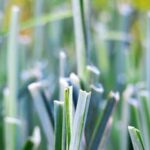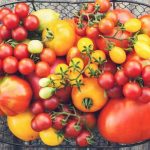Is brown mulch good for vegetable gardens? Brown mulch plays a vital role in maintaining the health and vitality of your vegetable garden. But what exactly is brown mulch, and how does it benefit your garden?
Brown mulch, made from materials such as shredded bark, wood chips, or straw, is an essential tool for vegetable gardeners. It serves several functions that contribute to the overall health and productivity of your plants.
One of the most commonly asked questions by gardeners is whether brown mulch is good for vegetable gardens. It turns out that brown mulch offers numerous benefits that can significantly improve the success of your vegetable garden. From regulating soil temperature to controlling moisture levels, brown mulch can be a game-changer for your gardening efforts.
In this article, we will explore the different types of brown mulch available and their specific benefits for vegetable gardens. We will also delve into its role in soil health, weed control, moisture retention, temperature regulation, and pest control.
Finally, we’ll discuss best practices for using brown mulch to achieve optimal results in your vegetable garden. Whether you’re a seasoned gardener or just starting out with your first vegetable plot, understanding the benefits of brown mulch is essential for a successful harvest.
Types of Brown Mulch
Brown mulch comes in a variety of options, each with its own unique properties and benefits for vegetable gardens. Understanding the different types of brown mulch available can help you choose the best option for your specific gardening needs.
Shredded Bark
One popular type of brown mulch is shredded bark, which can be made from a variety of tree species such as cedar, cypress, or pine. Shredded bark is known for its ability to retain moisture in the soil, suppress weeds, and provide an attractive appearance to garden beds. However, it may decompose relatively quickly compared to other types of mulch.
Cocoa Bean Hulls
Derived from the shell of cocoa beans, cocoa bean hulls are another type of brown mulch that not only adds a rich color and texture to the garden but also has a pleasant chocolate-like aroma. Cocoa bean hulls are lightweight and break down slowly, adding organic matter to the soil as they decompose. However, it is important to note that cocoa bean hulls can be toxic to pets if ingested.
Pine Nuggets
Pine nuggets are larger chunks of pine bark that provide excellent insulation against temperature extremes. They also break down slowly and help improve soil structure over time. However, their larger size may make them less effective at preventing weed growth compared to finer mulches. Consider the size of your vegetable garden and your overall maintenance needs when choosing pine nuggets as a brown mulch option.
The Role of Brown Mulch in Soil Health
Brown mulch plays a crucial role in maintaining soil health and promoting optimal growth in vegetable gardens. Here are some key factors to consider when using brown mulch for soil health in your garden:
- Nutrient Content: Brown mulch, such as shredded bark or wood chips, decomposes over time, releasing essential nutrients into the soil. These nutrients provide a fertile environment for vegetables to thrive and grow to their full potential.
- pH Levels: Certain types of brown mulch can also impact the pH levels of the soil. For example, pine bark mulch has acidic properties that can lower the pH of the soil over time. This is beneficial for acid-loving plants like tomatoes and peppers.
In addition to nutrient content and pH levels, brown mulch also aids in weed control by creating a barrier that blocks sunlight from reaching weed seeds, preventing them from sprouting and competing with your vegetables for nutrients. By keeping weeds at bay, brown mulch helps maintain the overall health of your vegetable garden.
Moreover, an added benefit of brown mulch is its ability to regulate soil temperature. During hot summer months, it acts as an insulator, keeping the soil cool and protecting plant roots from extreme heat. Conversely, in colder weather, it provides insulation that prevents rapid temperature fluctuations that could harm sensitive vegetable crops. Overall, the role of brown mulch in soil health is essential for creating an environment where vegetables can thrive and flourish.
Weed Control
When it comes to maintaining a healthy vegetable garden, weed control is essential. Unwanted weeds can compete with your vegetables for nutrients, water, and sunlight. Brown mulch can be an effective tool in keeping weeds at bay in your vegetable garden. Not only does it suppress the growth of weeds, but it also helps conserve soil moisture and improve soil structure as it breaks down over time.
The use of brown mulch creates a physical barrier that prevents weed seeds from germinating and reaching the surface. This reduces the need for manual weeding or the use of chemical herbicides, which can be harmful to the environment. Additionally, organic brown mulches, such as straw or wood chips, add organic matter to the soil as they decompose, further improving soil health and reducing weed growth.
In a study conducted by the University of California’s Division of Agriculture and Natural Resources, it was found that using organic mulches like straw resulted in fewer weeds compared to bare soil. The study also highlighted that brown mulch helped maintain soil moisture and provided thermal insulation against temperature fluctuations, ultimately creating a more favorable environment for vegetable growth.
Therefore, when considering weed control in your vegetable garden, incorporating brown mulch can offer multiple benefits beyond just suppressing weed growth.
| Benefit | Evidence |
|---|---|
| Weed suppression | University of California study shows reduction in weeds with organic mulches |
| Soil moisture retention | Brown mulch helps maintain soil moisture levels |
| Soil improvement | Organic matter from brown mulch improves soil health and structure |
Moisture Retention
When it comes to maintaining a healthy vegetable garden, moisture retention is key. Brown mulch plays a crucial role in helping to keep the soil moist, which ultimately leads to better growth and yield for your vegetables. Here are some ways brown mulch aids in moisture retention:
– **Protection from evaporation:** By forming a protective layer over the soil, brown mulch helps to reduce evaporation. This means that water stays in the soil longer, providing a consistent source of moisture for your vegetables.
– **Regulation of soil temperature:** In addition to preventing evaporation, brown mulch also helps regulate soil temperature. By keeping the soil cooler during hot weather and warmer during cooler weather, this organic material contributes to maintaining optimal conditions for moisture retention.
– **Prevention of runoff:** When heavy rain occurs, bare soil can be susceptible to erosion and runoff, causing vital nutrients and moisture to be lost. Brown mulch helps prevent this by creating a barrier that reduces runoff and keeps essential elements within the soil.
Incorporating brown mulch into your vegetable garden can make a significant difference in moisture retention, resulting in healthier and more robust plants. Consider using this natural method as an effective way to maintain consistent levels of moisture for your garden’s success.
Temperature Control
Insulation
One of the key benefits of using brown mulch in a vegetable garden is its ability to regulate soil temperature. In colder weather, brown mulch acts as an insulator, keeping the soil warm and protecting plants from frost and freezing temperatures. This is especially important for sensitive vegetables that are prone to damage from cold weather.
Heat Retention
During warmer weather, brown mulch helps retain moisture in the soil while also providing shade to prevent overheating. This balance of moisture retention and temperature regulation creates an optimal environment for vegetable growth. The mulch also reduces the evaporation rate of water from the soil, which is crucial for maintaining consistent moisture levels in a vegetable garden.
Preventing Temperature Fluctuations
Temperature fluctuations can have a significant impact on the health and growth of vegetable plants. Brown mulch helps to prevent drastic changes in soil temperature by acting as a buffer between the soil and external climate conditions. This stability can contribute to healthier, more resilient plants that are better equipped to withstand varying weather patterns.
In summary, using brown mulch in a vegetable garden provides an effective method for regulating soil temperature throughout the changing seasons. Whether it’s insulating against cold temperatures or retaining heat during warmer months, brown mulch plays a vital role in creating optimal growing conditions for vegetables.
Using Brown Mulch as a Natural Pest Deterrent in a Vegetable Garden
In addition to its benefits for soil health, moisture retention, and weed control, brown mulch can also serve as a natural pest deterrent in a vegetable garden. The use of organic materials such as straw, leaves, or bark can help repel pests such as slugs, snails, and certain insects that may damage your vegetable plants. These natural materials create an unfavorable environment for pests, making them less likely to wreak havoc on your garden.
One of the ways brown mulch acts as a natural pest deterrent is by creating a physical barrier between the soil and the plants, preventing pests from easily accessing the base of the vegetables. This is especially important for ground-dwelling pests that may feed on the roots or lower parts of the plants. Additionally, brown mulch can also reduce the likelihood of certain plant diseases caused by soil-borne pathogens, further protecting your vegetable garden from potential harm.
When using brown mulch as a natural pest deterrent in your vegetable garden, it’s important to consider the type of material you are using and how it may affect different types of pests. For example, some pests may be discouraged by certain scents or textures of specific mulch materials.
It’s also important to regularly monitor your garden for signs of pest activity and adjust your mulching practices accordingly to ensure effective pest control while promoting plant health and growth.
The Best Practices for Using Brown Mulch in a Vegetable Garden
Brown mulch can be very beneficial when used in a vegetable garden. However, there are some best practices to keep in mind to ensure that you get the best results from using brown mulch in your garden. One important practice is to properly prepare the soil before applying the mulch. This includes removing any existing weeds and adding a layer of compost or fertilizer to provide nutrients for your vegetables.
It is also important to apply the brown mulch correctly. The ideal thickness for brown mulch in a vegetable garden is around 2-4 inches. Make sure not to layer it too thick as this can prevent water and air from reaching the soil. Additionally, it’s best to keep the mulch a few inches away from plant stems to prevent excess moisture buildup and potential rot.
Another key practice for using brown mulch in a vegetable garden is regular maintenance. This includes checking for signs of pests, mold, or diseases, as well as replenishing the mulch as needed. As the mulch decomposes over time, it will need to be topped up periodically to maintain its effectiveness in weed control and moisture retention.
Overall, by following these best practices, you can maximize the benefits of using brown mulch in your vegetable garden and create an optimal environment for healthy plant growth.
| Best Practice | Details |
|---|---|
| Soil Preparation | Remove weeds, add compost or fertilizer |
| Proper Application | Apply 2-4 inches thick, keep away from plant stems |
| Regular Maintenance | Check for pests, mold or diseases; replenish as needed |
Conclusion
In conclusion, brown mulch can be a valuable addition to your vegetable garden for a variety of reasons. Not only does it help to keep weeds at bay and regulate soil temperature, but it also plays a crucial role in retaining moisture and improving soil health. The nutrient content and pH levels of the soil can be positively impacted by the use of brown mulch, ultimately benefitting the growth and yield of your vegetables.
It’s important to consider the different types of brown mulch available and choose one that best suits your specific gardening needs. Whether it’s straw, bark, or wood chips, each type of mulch has its own set of benefits and drawbacks. Additionally, implementing best practices for using brown mulch in your vegetable garden – such as proper installation and maintenance – can ensure optimal results and long-term success.
While using brown mulch can serve as a natural pest deterrent in your vegetable garden, it’s also important to monitor its impact on soil pH levels over time. Regular testing will help you adjust the use of brown mulch as needed to maintain a healthy growing environment for your vegetables. Overall, when used thoughtfully and responsibly, brown mulch can be an excellent tool for improving the overall productivity and health of your vegetable garden.
Frequently Asked Questions
Is Brown Mulch Safe for Vegetable Garden?
Brown mulch can be safe for a vegetable garden, as long as it is made from natural, untreated materials. Mulch helps retain soil moisture and control weeds, which are important factors in maintaining a healthy vegetable garden.
It’s important to avoid using colored or dyed mulches as they may contain chemicals that could potentially harm the vegetables or alter the soil composition.
What Color Mulch Is Best for Vegetable Garden?
The best color mulch for a vegetable garden is typically natural brown or black. These colors are more neutral and blend well with the earthy tones of a garden.
Additionally, natural-colored mulches do not contain any harmful dyes or chemicals that could affect the vegetables or the soil. Aesthetically, these colors also provide a nice contrast to the vibrant greens and colorful produce found in a vegetable garden.
What Kind of Mulch Do You Put in a Vegetable Garden?
When choosing mulch for a vegetable garden, it’s beneficial to use organic materials such as straw, grass clippings, leaves, or compost. These types of mulch not only help to suppress weeds and retain moisture but also break down over time to enrich the soil with nutrients.
Organic mulches also improve soil structure and promote beneficial microbial activity, which contributes to overall plant health and productivity in a vegetable garden.

If you’re looking to get into vegetable gardening, or are just looking for some tips on how to make your current garden better, then you’ve come to the right place! My name is Ethel and I have been gardening for years. In this blog, I’m going to share with you some of my best tips on how to create a successful vegetable garden.





